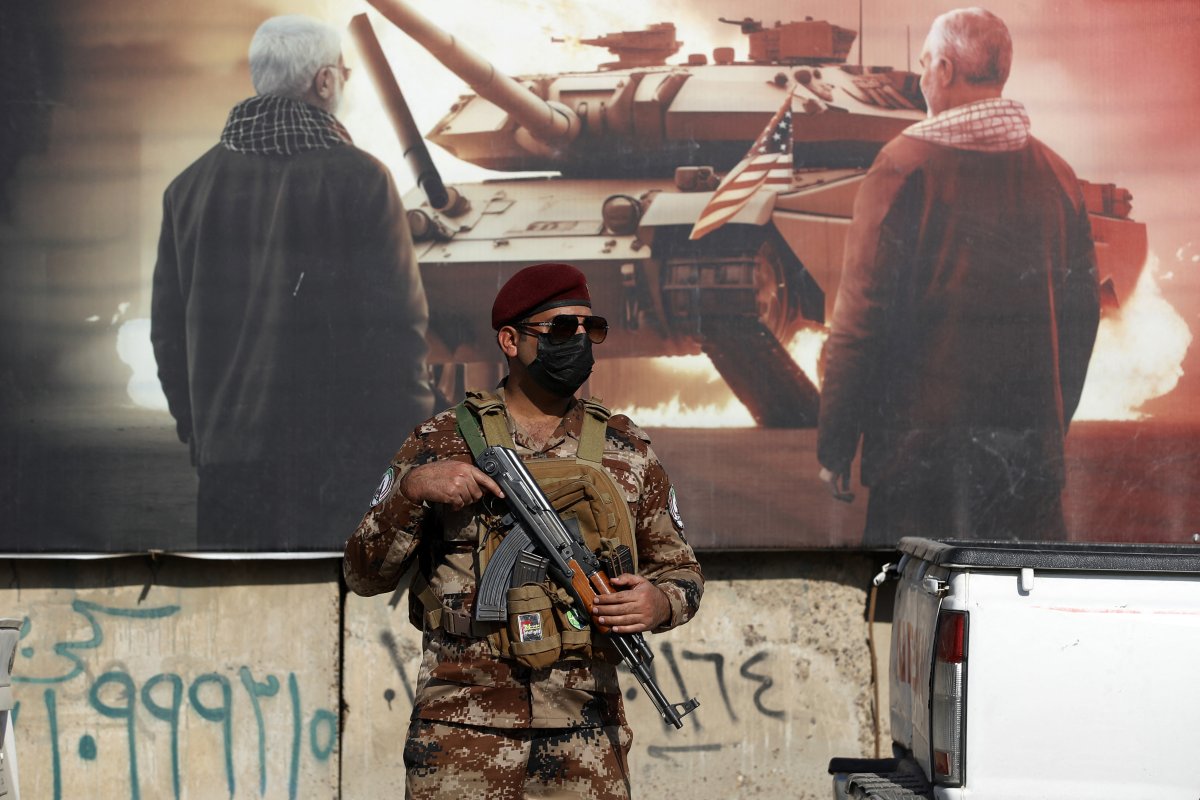Senior officials of President Joe Biden's administration have stated that they were not looking to just send a signal, but to degrade the capabilities of Iran's Islamic Revolutionary Guard Corps (IRGC) and its allied militias through the comprehensive set of strikes launched against targets in Iraq and Syria.
"This wasn't just a message-sending routine tonight," White House National Security Council Strategic Communications Director John Kirby told reporters Friday, hours after U.S. warplanes conducted dozens of strikes in Iraq and Syria. "This was about degrading capability taking in a more robust way than we have in the past, taking away capabilities by the IRGC and the militant groups."
He emphasized that "these responses began tonight, they're not going to end tonight."
As tensions mount across the Middle East on the sidelines of the still-raging conflict between Israel and the Palestinian Hamas movement, Kirby also echoed Biden's position that the U.S. is "not seeking a war with Iran." As such, he argued that the latest strikes—and those to come—were designed to prevent a larger conflict rather than provoke it.
"How does this comport with not wanting a broader conflict?" Kirby said during a press call hours after U.S. warplanes conducted strikes across seven facilities in Iraq and Syria on Friday. "Because if you're taking away capability of an adversary who's trying to kill your troops and act against your interests in the region, ... then you are, by default, working to de-escalate the tensions."
But a representative of Kataib Hezbollah, one of the most powerful units behind the attacks on U.S. troops, warned of only further violence if Biden goes after its officials.
"If an official in Kataib Hezbollah Iraq is targeted," the representative told Newsweek via Telegram, "we will kill 10 American soldiers in his place."

Kirby has not specified whether or not Kataib Hezbollah, in particular, was targeted during the latest strikes, but he did name the group as a part of the "Islamic Resistance in Iraq" coalition that has claimed near-daily attacks against U.S. troops since mid-October. The campaign followed the unprecedented surprise attack led by Hamas against Israel, sparking the deadliest-ever war of the long-running Israeli-Palestinian conflict.
The U.S. has since conducted several rounds of strikes targeting militias in Iraq and Syria. But the deaths of three U.S. soldiers in a drone strike at the Jordan-Syria border on Sunday set the stage for a more serious response.
That response came Friday, with U.S. forces striking 85 targets across seven facilities, three in Iraq and four in Syria, according to Kirby. He said "numerous aircraft" were involved in the operation, including U.S. Central Command fighter jets and B-1 bombers dispatched from the U.S., firing more than 125 precision-guided munitions over the course of around 30 minutes.
Targets included command and control centers, headquarters, intelligence centers, rocket, missile and storage facilities and logistics, ammunition and supply chain facilities, according to Kirby. While he said the results of the operation were still being assessed, he added that the Pentagon believed they "were successful."
The U.S. strategy has been met with some skepticism, however. The governments of both Iraq and Syria have repeatedly condemned U.S. strikes in their respective nations, viewing them as potentially destabilizing violations of national sovereignty.
For Iraq, in particular, which has been a U.S. security partner since the U.S.-led invasion that toppled President Saddam Hussein in 2003, the worsening violence between U.S. forces and the Islamic Resistance in Iraq has raised concerns.
The latest attacks also come weeks after the U.S. and the United Kingdom, supported by several partners, launched a series of airstrikes against Yemen, where another powerful Iran-aligned militia, Ansar Allah, also known as the Houthis, has waged a campaign of attacks in response to the war in Gaza. Ansar Allah has targeted commercial vessels accused of having ties to Israel, disrupting maritime traffic in the crucial Red Sea trade corridor.
Thus far, however, neither Ansar Allah nor the Islamic Resistance in Iraq have expressed any indication of backing down. While Kataib Hezbollah had announced a suspension of operations against the U.S. on Monday, a representative of the group previously told Newsweek that it was prepared to respond to any new U.S. attacks.
Iran, for its part, has denied ordering or having any direct control over "Axis of Resistance" militias across the region, and, like their U.S. counterparts, Iranian officials have repeatedly stated that they did not seek a broader war in the Middle East. But the Islamic Republic has warned it would respond to any threats.
"We hear threats coming from American officials, we tell them that they have already tested us, and we now know one another," IRGC commander-in-chief Major General Hossein Salami said Wednesday, as speculation grew as to how far Biden would go in his response to the deaths of three U.S. troops.
"No threat will be left unanswered," Salami said at the time.
Newsweek has reached out to the governments of Iran, Iraq and Syria, the Popular Mobilization Forces and representatives of the Nujaba Movement for comment.
Update 2/2/24, 8:51 p.m. ET: This article was updated to include comment from a representative of Kataib Hezbollah.
Uncommon Knowledge
Newsweek is committed to challenging conventional wisdom and finding connections in the search for common ground.
Newsweek is committed to challenging conventional wisdom and finding connections in the search for common ground.
About the writer
Based in his hometown of Staten Island, New York City, Tom O'Connor is an award-winning Senior Writer of Foreign Policy ... Read more
To read how Newsweek uses AI as a newsroom tool, Click here.








